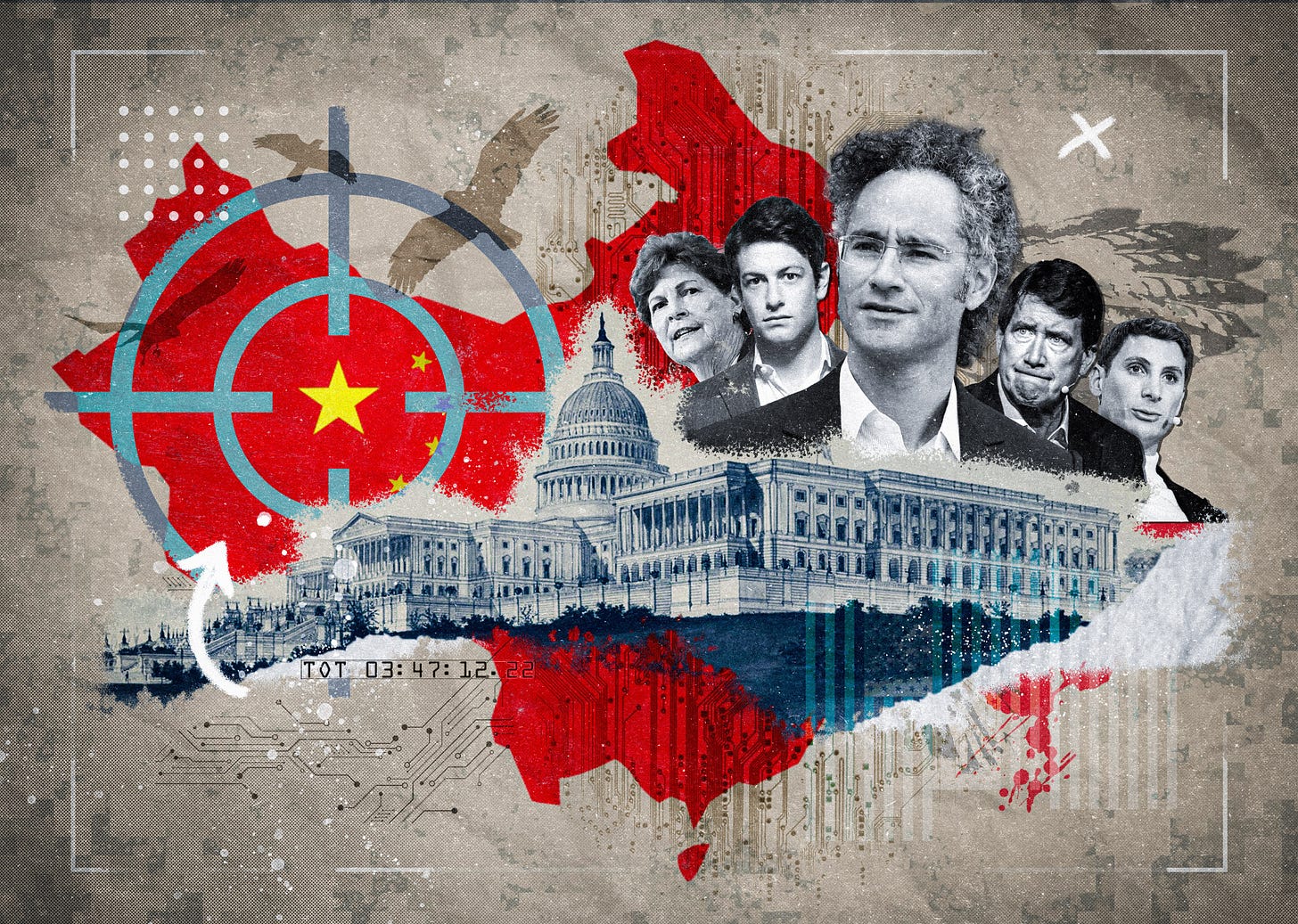Welcome to the China Hawk Industrial Complex
At a bustling conference on Capitol Hill, politicians and tech execs traded tips on how to win a cold war with Beijing.
Julia Black is a reporter living in Brooklyn. She has written for The Information, Business Insider, The Verge, Esquire, and other publications.
On the last day of April, a clear blue sky stretched over the US Capitol as hundreds of entrepreneurs, investors, and lawmakers assembled for an event known as the Hill & Valley Forum. But ask most of the people who had gathered inside, and they’d tell you there was a storm coming.
You could sense the mood from people like OpenAI backer Joshua Kushner, founder of the tech-focused venture capital firm Thrive Capital and little brother of President Trump’s son-in-law, Jared. Taking the stage late in the day for one of the conference’s most well-attended sessions, “Digital Dominion: Reviving American Leadership in the 21st Century,” Kushner sounded an alarm. “Treat this moment—even though we’re in first place—as an absolute crisis,” he told the audience. “If we don’t, the consequences could be dramatic.”
Kushner, sporting a black suit, black tie, and a head of loose but sculpted black hair, was talking about the arrival of DeepSeek, a Chinese AI company that jolted American investors in January with the release of its powerful R-1 model. If China wins the AI arms race, Kushner warned, our chief geopolitical rival would possess the ultimate soft-power tool to transmit its values and narratives worldwide.
Hill & Valley—a mash-up of “Capitol Hill” and “Silicon Valley”—came into being four years ago as a small gathering intended to strengthen ties between the defense sector and the tech sector. But as the event has grown, this general goal has shifted toward something more specific: countering the threat China poses to US national security.
In the speed of its evolution, Hill & Valley reflects a dramatic and even abrupt shift of narrative and mindset in the defense and tech sectors. Gone is a global-minded optimism that still characterized Silicon Valley a decade ago, when tech moguls spoke of the power of information technology to generate wealth and spread liberty across the world. What’s emerged in its place is a more hawkish and nationalistic vision of American power. That shift may be rooted in sincere anxieties about the threat of China, but it also signals the rise of a militarized innovation economy—one powered by actors less interested in diplomacy and free trade than in deterrence and dominance.
During the daylong event, which took place in a 450-seat theater in the Capitol Visitor Center, over 40 panelists, including ten elected members of the House and Senate, took the stage, flanked by a display of American flags. If there was a conflict over dress code, Washington had won it. Tech bros had traded hoodies and jeans for the suit-and-tie uniform of their Washington hosts—offset at most by a pair of sneakers.
One of the most important people in this convergence was Jacob Helberg, a 35-year-old tech executive, think-tank veteran, and co-founder of the Hill & Valley Forum. Since August 2023, he has served as a senior adviser to Palantir CEO Alex Karp, but his rise has been shaped as much by politics as by technology. Not long ago, Helberg was a Democratic donor and a prominent critic of Russian interference in US elections, blaming Moscow for promoting “unwarranted conspiracy theories claiming Trump had in fact won” the election in 2020. Today, he is a part of Trump’s foreign policy brain trust.


